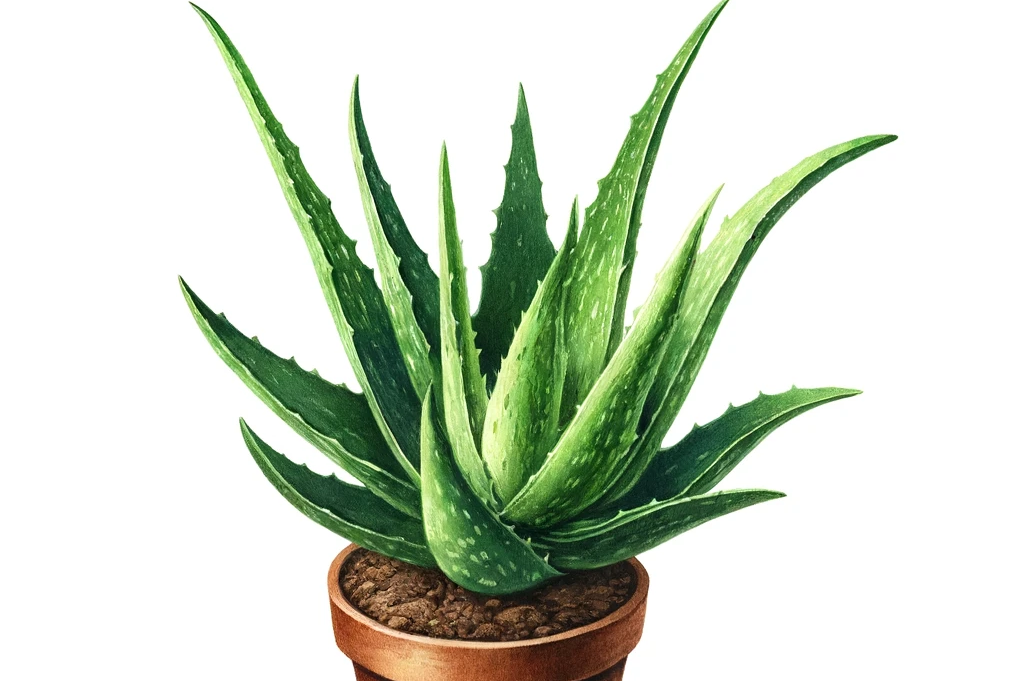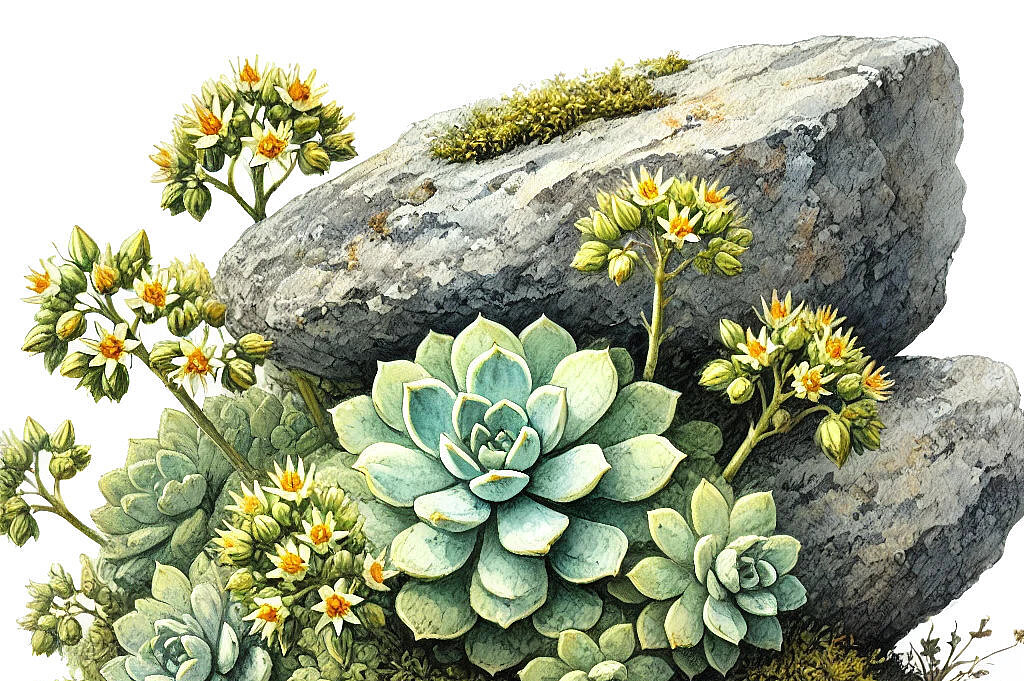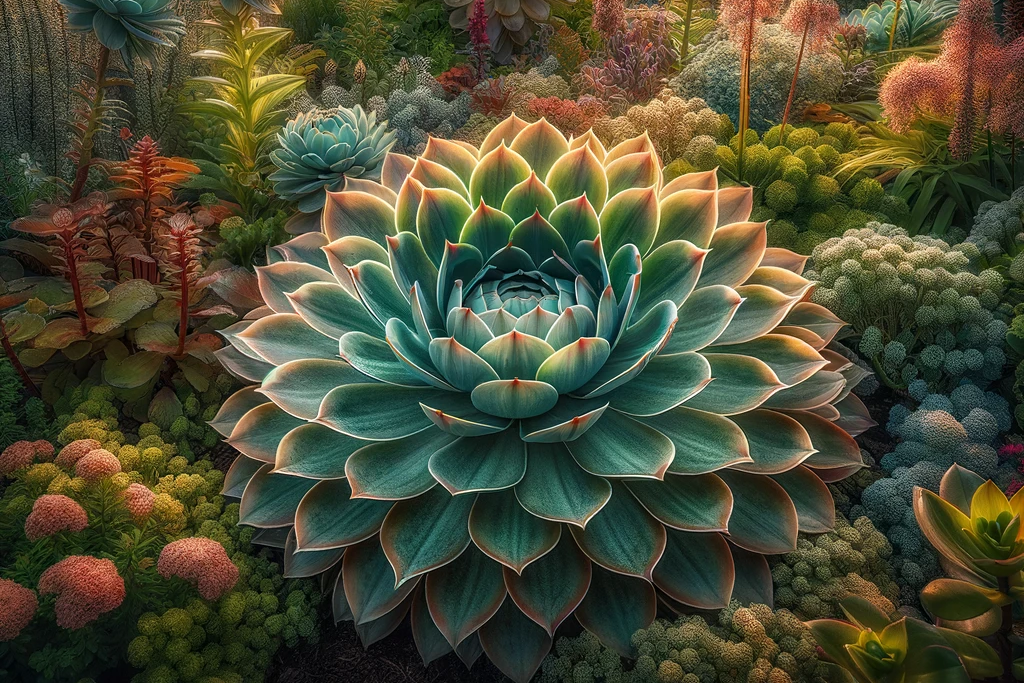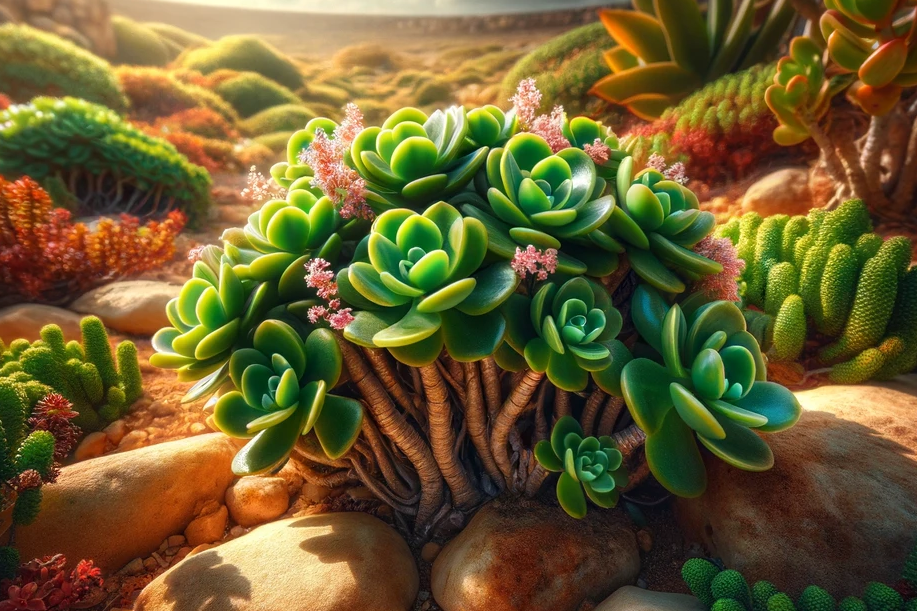Echeverias

What are echeverias?
Echeverias belong to the Crassulaceae family and are known for their rosette shape and variety of colors and sizes. Originally from the arid regions of Central and South America, they have established themselves in households worldwide thanks to their drought tolerance and low maintenance requirements. Echeverias can be cultivated both indoors and outdoors as long as they are protected from frost and receive sufficient sunlight.
Advantages: Safety and aesthetics in harmony
Non-toxic to dogs
Perhaps the biggest advantage of echeveria in relation to dogs is its non-toxicity. Unlike many other houseplants, echeverias pose no risk of poisoning if nibbled by curious dogs. This makes them a safe choice for households that are both dog lovers and plant lovers.
Air-purifying properties
Like many other plants, echeverias help to improve the air quality in the home. They can help filter pollutants and make the indoor air fresher, which indirectly contributes to the health of the animals living in the house.
Disadvantages and risks: Caution is advised
Risk of injury
Although echeverias are not poisonous, their sometimes pointed or hard leaves can cause injury, especially if a dog tries to chew or swallow the plant. Injuries to the mouth or even constipation could be the result.
Care requirements and choice of location
Despite their low maintenance requirements, echeverias need sufficient sunlight to thrive. The need to place them in areas close to the sun can mean that they are more accessible to dogs, increasing the risk of interaction.
Echeverias offer a delightful way to add greenery to your home without putting your dog's health at risk. Their non-toxicity makes them a safe choice for households with dogs, provided attention is paid to the potential risk of injury from their leaves. As with any household change that could affect your pet, it's important to carefully monitor the introduction of new plants and ensure they are placed out of your dog's reach to minimize any risk. Balancing aesthetics and safety, echeverias can be a harmonious addition to a dog-friendly home as long as conscious management is ensured.
If you notice any signs of hypersensitivity or poisoning in your dog, you should see your vet immediately. We are not a substitute for a vet, but we try to be as accurate as possible. Every dog reacts differently and we recommend you get a second opinion or consult your vet if in doubt.
Stay healthy and take good care of your four-legged friend!😊
Similar to Echeverias
Aloe vera is a succulent plant that belongs to the lily family. It has long, thick, fleshy leaves with spines on the edges. A gel or juice containing many valuable ingredients can be extracted from...
Sedum, often known as stonecrop, is a genus of succulents comprising over 600 species. These plants are popular because of their undemanding care, drought tolerance and diverse shapes and colors....
Graptopetalum is a member of the thick-leaved family and includes various species of succulents characterized by fleshy leaves and often star-shaped flowers. These plants are particularly prized for...
The thickleaf (Crassula ovata), often called the money tree, is a popular houseplant that originally comes from South Africa. It belongs to the succulent family and is characterized by its fleshy,...



